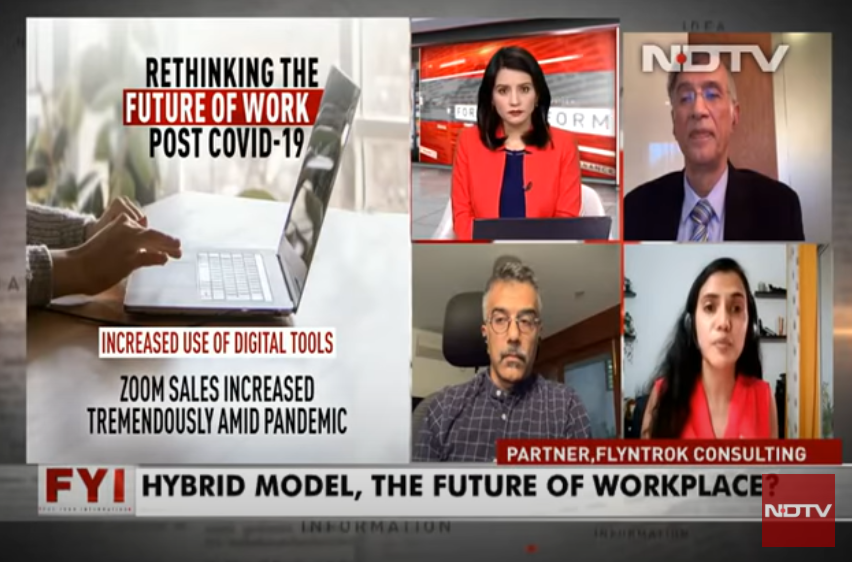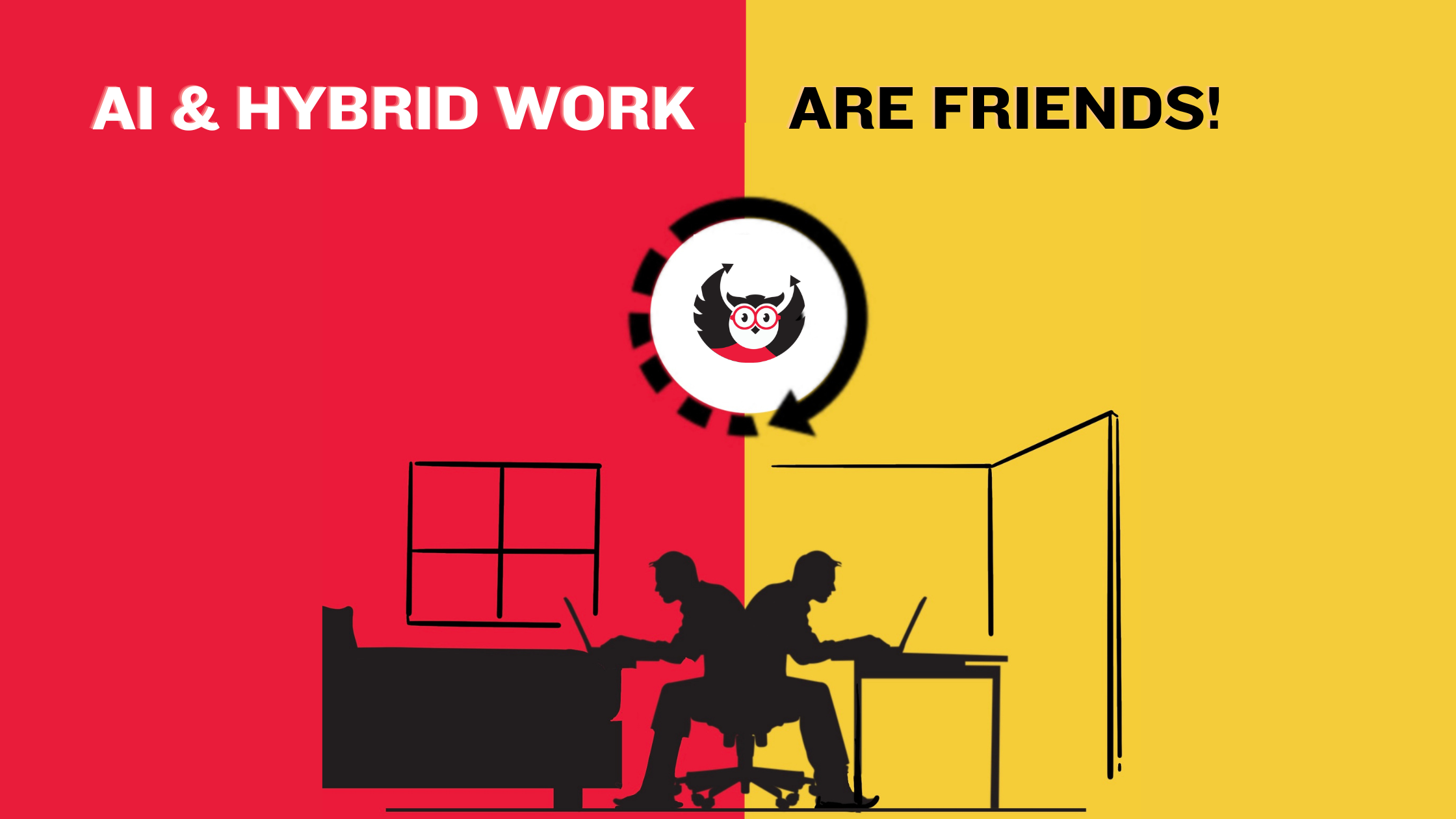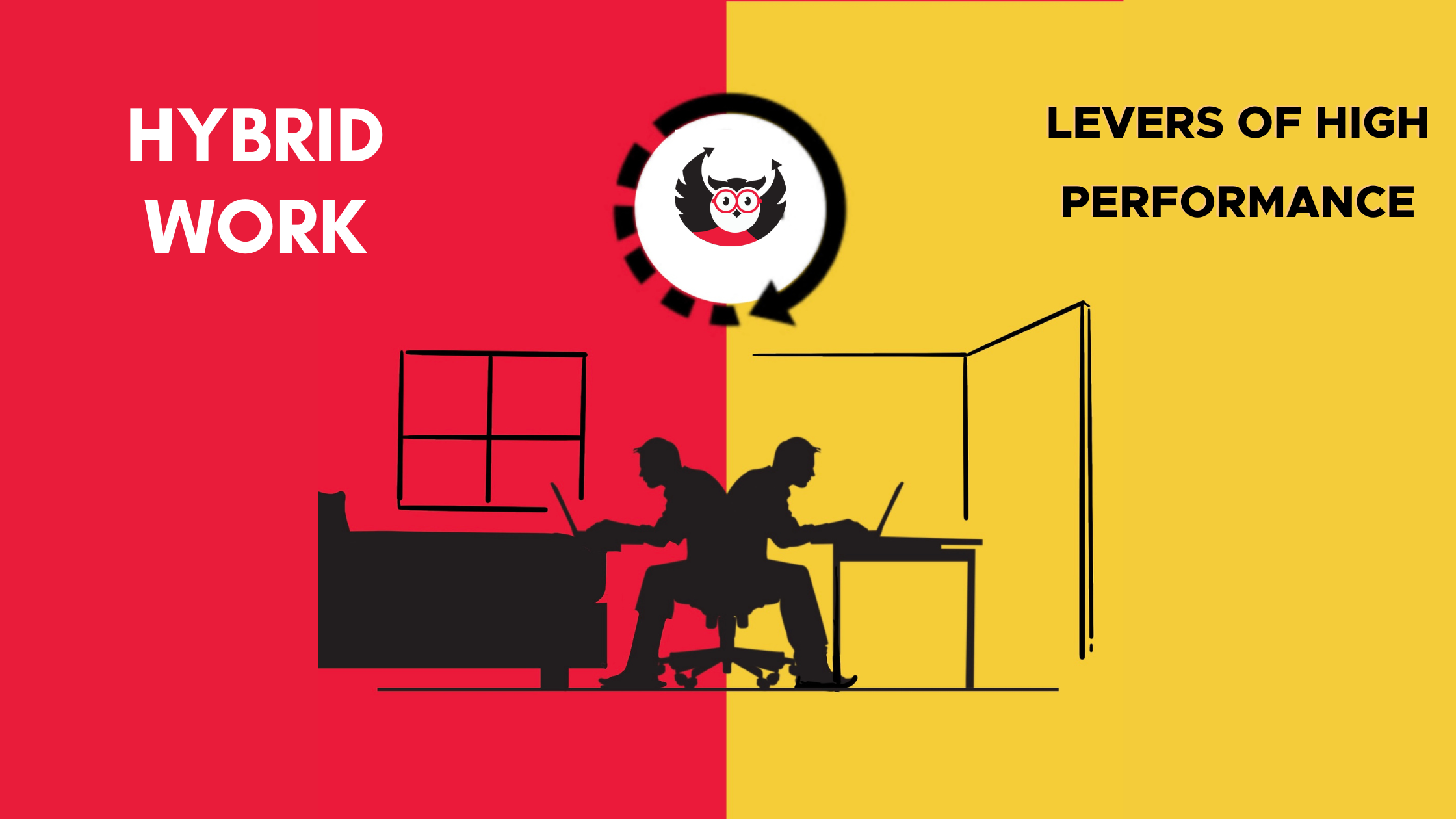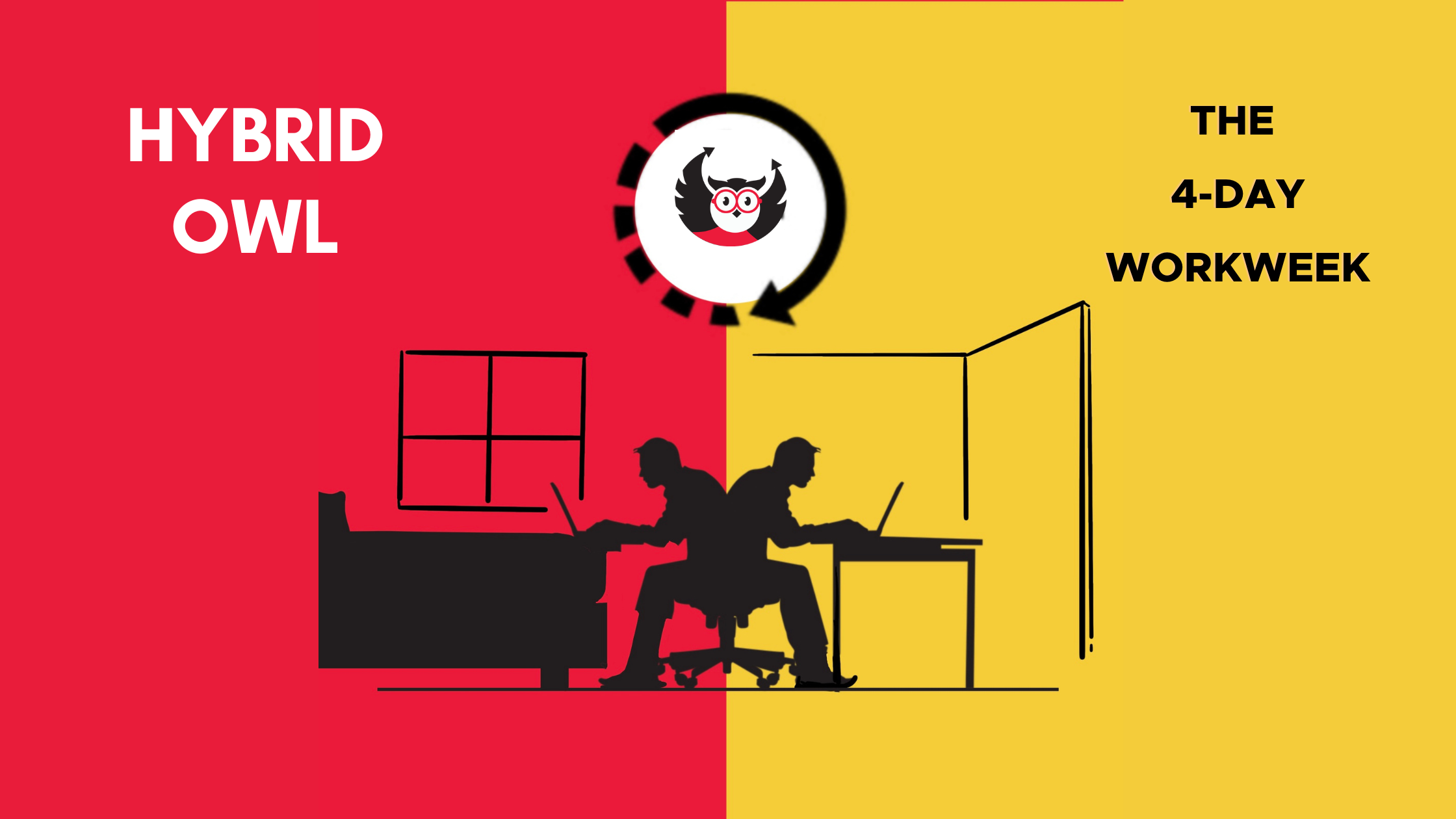Hybrid work is evolving as the ‘near future of work’ choice for many companies. Most times this hybrid work future is being necessitated by macro realities. The spread of infections, vaccinations and govt policies means that we won’t all turn up to office on ‘one’ day. We offer a hybrid work discussion and resources for companies.
Deepa Premkumar, our partner was in a panel discussion recently by NDTV, a national television group on Hybrid work. The video is shared at the bottom of the post. Here is some additional context.
When the pandemic forced work from home, employees and companies adapted quickly. Productivity increased, client commitments were met and by and large employees coped with completely remote working. Now when offices are resuming in stages, companies could think it will be a seamless shift to hybrid work. Yet, if hybrid work is not designed with intent, it will combine the worst of office and home working, says Sid Sijbrandij, CEO &Co-founder Gitlab.
At Flyntrok, we have had a number of conversations on the topic. We publish research and other resources available through our newsletter, the OWL Sightings on Hybrid Work. It is open access for all, for now. You can sign up here.
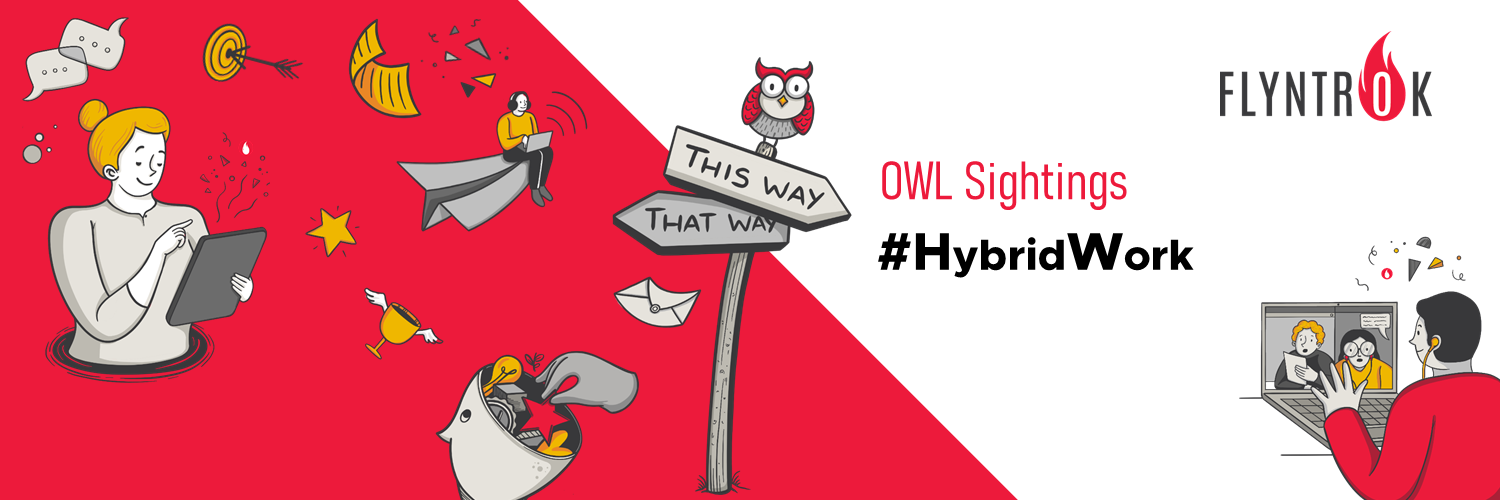
Our research and work in this area, prompts us to share these as tenets to bear in mind as offices re-open in a staggered manner.
Tenets for consideration while adopting hybrid work
1) Hybrid working calls for a careful examination of the way work is done, processes followed and tools made available to employees. It cannot be a default extension of the past office life.
2) Adoption of hybrid working entails a few tough conversations internally for organisations. These conversations range from the areas of compensation, inequalities of resources/opportunities, employee well-being, harassment and more.
3) Employees have shown that they can perform with limited supervision these 18+ months. They will be loath to go back to ‘under-my-nose’ always kind of managerial styles. Helping managers and leaders adopt a more supportive style of management, will become even more critical for organisations.
4) Hybrid creates autonomy for employees. Autonomy for employees , includes ‘where’ and ‘when’ work is done. The time and place principle of hybrid work. Working asynchronously and effectively is the superpower for the superteams that Hybrid work can unleash. Enabling asynchronous working will mean a re-design of how work gets done (point 1) and communicated (Point 5)
5) Companies need to revisit their regular communication channels within teams. How does work get discussed? Where do updates get shared? How does everyone know what is getting done when? All of these communication flows need to be designed with care. Else in hybrid working it can cause wide chasms of information and opportunity gaps. Cutting off employees from opportunities and preventing them from feeling like they belong to a team.
Here is the discussion for you.
